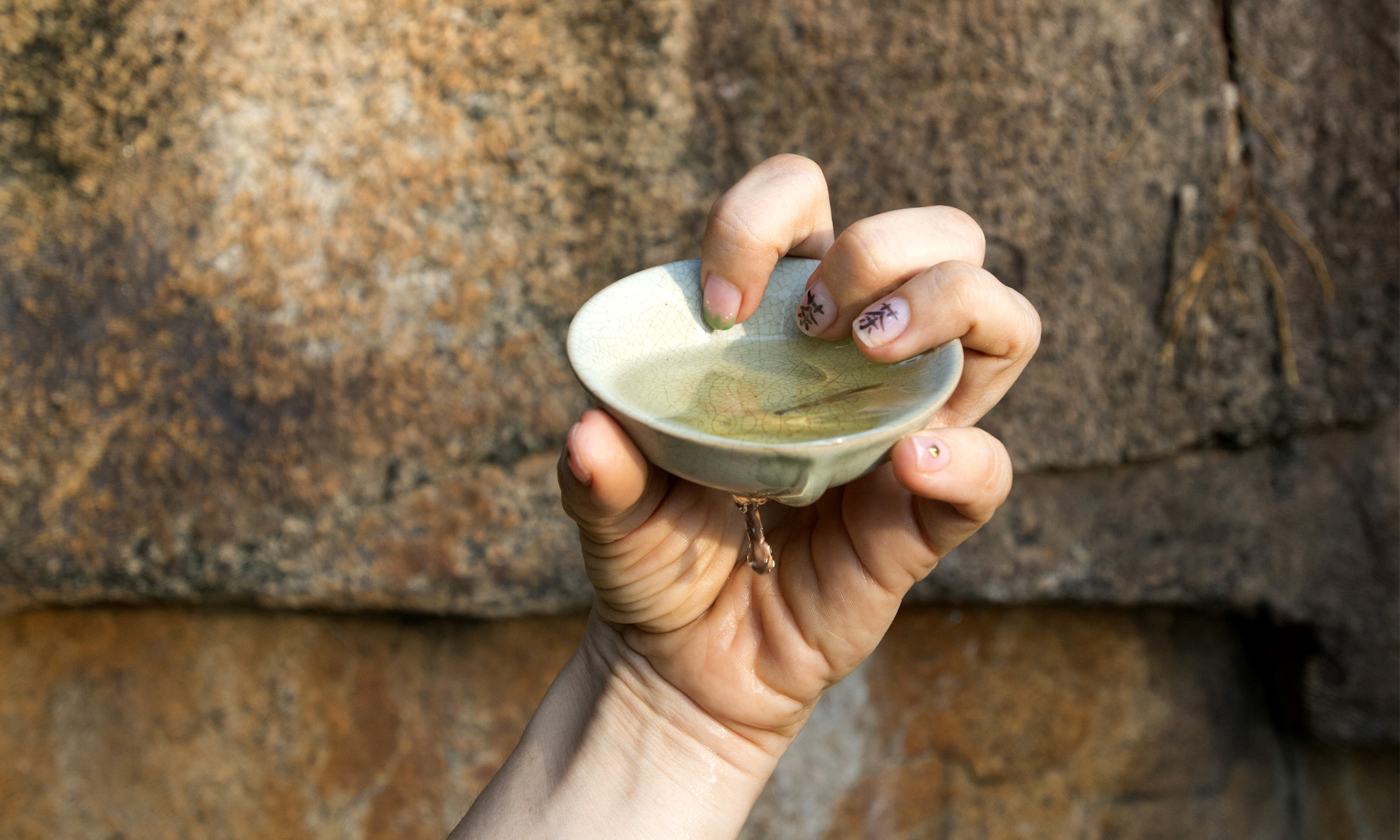When topic and taste are not agreed on, but we still try to talk – as if – we spoke in unison. Your tea, my tea, Lu Yu’s tea… Simply put, all of us are talking about a different concept.
By way of tea – and in the broader picture of course flavour in general – we all have our own ideas of what it is. When in Europe and talking about tea, by saying one feels like a cup of tea, the likelihood is – the images conjured up are completely different. Even if, we made the curious stipulation of narrowing it down to Chinese tea… one does not arrive at the same place. And this is really nothing to do with ethnicity; one is up against the same problem even in China, Chinese among the Chinese.
For example: I shudder every time my tea master for the day is an avid smoker. Not falling prey to prejudice about smokers and their taste buds, but I just know without saying he will brew a cup I have come to call “hard brew” which basically means: either too hot or way too long. If you pour water which is too hot over tea leaves that do not require it, you in effect burn some of the subtler notes available. If you steep the leaves too long, you will definitely have a very fragrant brew and deep colour, but you have distorted the dimensions in the flavour and the rhythm of the brew. And most likely managed to bring out bitterness or tartness that was avoidable, and by no means in line with the tea’s nature. The brewer will probably go on to say how wonderful and satisfying the cup he serves me is. And the issue is: he is right. For that person, that so called hard brew is the pinnacle of delight. I shudder, he sighs with pleasure.
“The best quality tea must have the creases like the leather boots of Tartar horsemen, curl like the dewlap of a mighty bullock, unfold like a mist rising out of the ravine, gleam like a lake touched by a zephyr, and be wet and soft like earth newly swept by rain.”
Lu Yu, Writer of Chajing the Classic of Tea, and also canonised as tea deity

Even the famous Lu Yu loved his tea without a question strong and leathery – talk about a hard brew. And this brings us to the second level of the problem. He and I, are not talking about the same product (by example: Lu Yu liked his tea with salt – how about you?) As a matter a fact, one quotes any Tang- or Song-dynasty era poet or intellect on tea, and truth be told, one has no moral ground to be saying the topic at hand is actually the same. With all their passion and enlightment and intellect not disregarded, the concepts are not the same, whether or not one refers to tea ware or brewing techniques. We are simply not on the same page.
Not just cross the ages, or cross-culturally, but probably we will be hard pressed to find true fellowship of the flavour even among our closest circle of people. One can count it a true blessing if one does. I for one have many beloved people around me that I would have no problems trusting with my credit card pin-code, keys to my house, feeding my cat or/and cleaning my kitchen, but I would not have them choose my teas for me. Trust is not just one formless lump: in our everyday lives it presents itself more diversely we really care to vocalise. One friend is more reliable in being on time, someone more frugal with their spending, yet another is great with kids… who would you trust to choose your flavours for you?
If one is not particular with how things taste, then this question diminishes to irrelevance, but if by any chance you are: anybody in your circle of friends worthy of the honorary title “taste bud buddy” or maybe a tad less mundane “ad hoc sensory scientist”? I am just making these up as I go along, I myself am also in search of a title noble enough of what I am trying to get at with this rant. All suggestions are welcome!

The point is not that these worthy people do not exist, the point is they are scarce. If you have someone like that at hand, rejoice bountifully in your luck. And if you find yourself often disagreeing by the tea table about the flavour, accept it for what it is: a difference in tastes as age old as tea itself! I mean, why did Lu Yu feel the necessity to write Chajing, the Classic of tea – aka. the Tea Bible – in the first place? He too wished for some form of standard to exist. The irony being, time would rain on his parade; we can hardly recognise the product he spoke about anymore.
Do we all need to taste the same way? Like the same things? No, is the unchanging answer. But the scintillating magic of a moment when one can share tablefellowhood with someone who appreciates the same virtues in flavour as yourself –
let us not take away anything from that moment either.
May you all have many of those moments.

